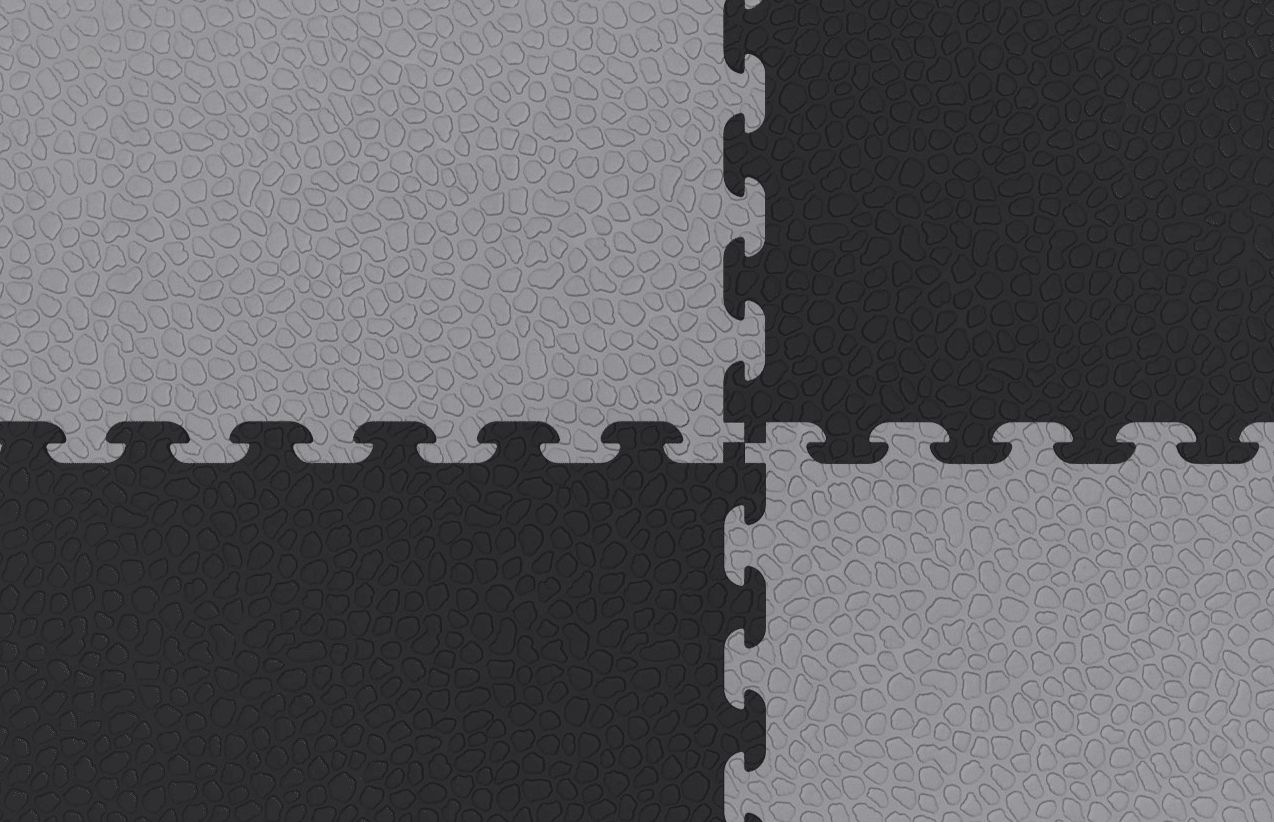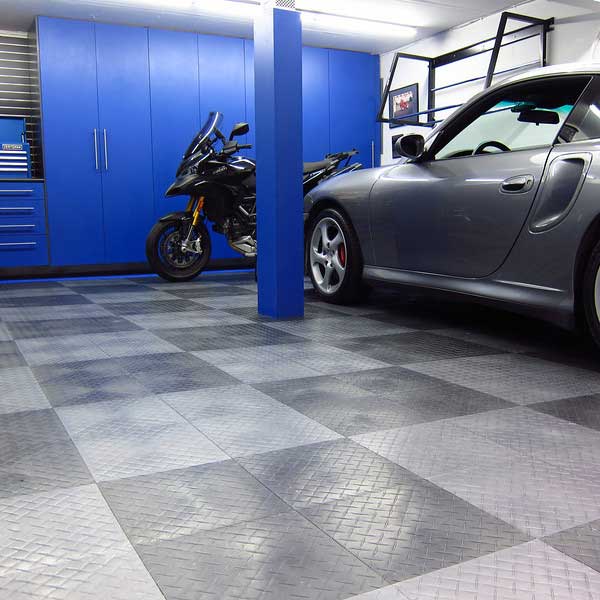Your garage is a hub of activity, a place where projects come to life and vehicles reside. With all that going on, it’s also a prime location for spills. Oil, gasoline, antifreeze, battery acid, paint, and various cleaners are common inhabitants, and without proper protection, these chemicals can wreak havoc on your garage floor. Preventing chemical damage is not just about keeping your garage looking good; it’s about preserving the integrity of your floor and ensuring a safer environment. At Garage Flooring LLC, we offer solutions that act as a robust shield, and we’re here to guide you on the best practices for chemical defense.
The Chemical Threats Lurking in Your Garage:
Many common garage chemicals pose significant risks to unprotected concrete and even some lesser-quality floor coverings:
- Automotive Fluids:
- Oil & Grease: Infamous for deep staining and creating slippery hazards.
- Gasoline: Can quickly break down and dissolve some coatings and paints. Highly flammable.
- Brake Fluid: Highly corrosive and can etch concrete and damage many paint types.
- Antifreeze/Coolant: Can leave sticky, difficult-to-remove stains and is toxic.
- Battery Acid: Extremely corrosive, capable of rapidly etching and eroding concrete, leaving permanent damage.
- Household & Project Chemicals:
- Paint & Solvents: Can stain, dissolve, or etch.
- Cleaning Products: Some strong degreasers or acid-based cleaners can react with certain floor types.
- Fertilizers: If spilled and left damp, can stain concrete.
- Road Salts & De-icers: Tracked in during winter, these are corrosive and can lead to concrete spalling (flaking) over time.
Bare concrete is highly porous and will readily absorb, stain, and degrade from these substances. Once absorbed, they are incredibly difficult, if not impossible, to fully remove.
Your First Line of Defense: Choosing the Right Flooring
The most effective way to prevent chemical damage is to install a protective flooring system designed for chemical resistance.
- High-Performance Polyurea Coatings:
- Superior Resistance: Polyurea is a champion in chemical resistance. Its seamless, non-porous nature and robust chemical structure make it exceptionally resistant to a vast array of common garage chemicals, including battery acid, fuels, and solvents. Spills often just bead up on the surface, allowing for easy cleanup.
- Seamless Barrier: Creates a continuous, impermeable layer over your concrete.
- Robust Epoxy Coatings:
- Excellent Resistance: High-quality, 100% solids epoxy coatings also provide very good chemical resistance, creating a hard, non-porous surface that repels most common garage fluids and prevents staining. They are a significant upgrade over bare concrete or “epoxy paints.”
- Seamless Barrier: Like polyurea, they form a solid, protective layer.
- Chemical-Resistant Garage Floor Tiles:
- Durable Materials: Many garage floor tiles, particularly those made from high-grade polypropylene, are highly resistant to automotive fluids, greases, and many household chemicals. Tiles themselves are chemical resistant, but are not watertight so will not be as protective of the concrete below as a coating would be.
- Easy Replacement: A key advantage is that if a tile somehow gets damaged by an extreme chemical spill, individual tiles can be easily replaced without redoing the entire floor.
- Airflow Channels: Some tiles feature airflow channels underneath, which, while primarily for moisture vapor, can also help prevent liquids from sitting directly on the concrete below the tiles for prolonged periods if they seep through the seams.
- Heavy-Duty Garage Floor Mats:
- Primary Containment: While not a full floor solution, these large, roll-out mats are excellent for primary chemical spill containment directly under vehicles. Many are made from durable, impermeable vinyl and some are designed to effectively trap liquids with raised edges, preventing them from reaching your concrete.
Beyond Flooring: Proactive Prevention Strategies
Even with the best flooring, proactive steps can further safeguard your garage:
- Proper Chemical Storage:
- Store all chemicals (oils, paints, cleaners, fertilizers) in their original, tightly sealed containers.
- Keep containers on shelving units or in cabinets, off the floor, to prevent leaks or spills if a container is compromised.
- Use secondary containment trays (plastic bins) under particularly hazardous or frequently used chemicals.
- Utilize Containment Mats:
- Place a garage containment mat under any vehicle that is frequently parked or undergoing maintenance. These mats are specifically designed with raised edges to hold significant volumes of liquid, ensuring spills are contained.
- Use Drip Pans/Trays:
- Always place drip pans or trays under engines, transmissions, or any equipment that might leak. This offers immediate, localized protection.
- Designate Work Zones:
- If possible, create a specific work area for messy tasks (e.g., oil changes, painting) and cover it with extra drop cloths or cardboard if your primary flooring isn’t specifically designed for extreme chemical abuse.
Immediate Action: Spill Cleanup Best Practices
No matter how vigilant you are, spills can happen. Prompt cleanup is crucial.
- Safety First: Always put on appropriate Personal Protective Equipment (PPE) like chemical-resistant gloves before dealing with a spill.
- Blot, Don’t Wipe/Spread: Use absorbent materials (paper towels, shop rags, kitty litter for larger spills) to blot up the liquid. Avoid wiping or spreading the chemical, which can push it into more areas or seams.
- Neutralize (if necessary): For battery acid, immediately neutralize it with a baking soda and water solution before cleaning.
- Clean Thoroughly: Use a mild, pH-neutral cleaner (like Dawn dish soap) and warm water to clean the affected area. For stubborn greasy residues, a degreaser like Greased Lightning or Purple Power can be used with a non-abrasive scrubber pad.
- Rinse Completely: Rinse the area thoroughly with clean water to remove all chemical and cleaner residues. You can use a squeegee to push water to a drain or out of the garage.
By combining the right chemical-resistant garage flooring with smart preventative habits and quick cleanup, you can create a garage environment that remains safe, clean, and beautiful for years, free from the damaging effects of chemical spills.
Ready to shield your garage floor from chemical threats?




